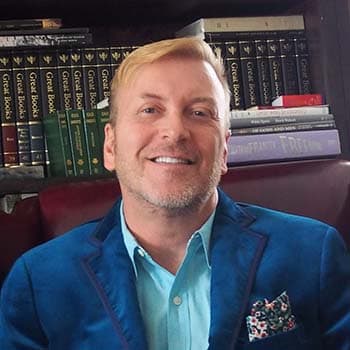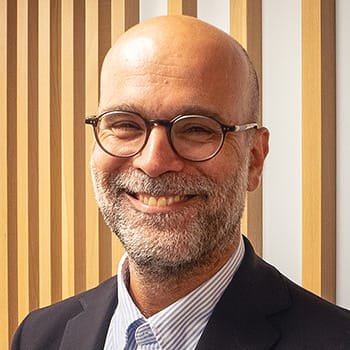
Digital Program
Foundational Certificate in Narrative-Based Medicine
Program Begins Online March 10, 2026
Narrative-based medicine is premised on the understanding that, knowingly and unknowingly, practitioners and patients together construct narratives over the course of their encounters; that these stories – with their multiple characters, conflicts and desires, subtleties and miscommunications – affect the nature and meaning of health events in all our lives; and that getting better at working with stories of all kinds has a powerful impact on both patient care and clinician fulfillment.
Jointly led by an expert in narrative-based medicine and an accomplished writer, both of whom have extensive experience working with health professionals, this intensive program is taught in two parts: NBM Principles and Practices focuses on the theory and practice of narrative-based medicine while Writing and Narrative Craft seeks to improve learners’ creative and reflective skills as writers and readers.
The program is Canada’s only virtual intensive certificate program in narrative-based clinical practice. Domestic and international learners across all disciplines are welcome.
Target Audience
Healthcare practitioners from all clinical fields and disciplines; artists interested in learning about NBM; clinicians or educators interested in bringing narrative into their work; scholars interested in the intersection of creative writing and healthcare; those working in health communications, policy or advocacy. Writers at every level are welcome.
Program Goals
- To enhance understanding of narrative approaches in healthcare including awareness of the role of story in receiving and providing of care
- To promote humanistic healthcare through a careful examination of story in healthcare
- To enhance narrative skills of close reading, creative and reflective writing, and nuanced response to each other’s stories
- To create a supportive and collegial environment that promotes reflection, dialogue, and interdisciplinary learning in NBM
Learning Objectives
After active engagement in the program, learners will be better able to:
- Describe the conceptual foundations of narrative-based medicine and its role in enhancing humanistic healthcare including the parallels between literary narrative techniques and clinical storytelling.
- Analyze patient and clinician narratives for underlying meanings (subtexts), contextual factors shaping the experience of illness and care-giving, and personal biases and assumptions that may inform responses, to enhance a more nuanced understanding of clinical care.
- Compose reflective and creative narratives that explore healthcare themes (such as critical incidents, challenging clinical encounters, ethical dilemmas, dealing with loss or suffering, and receiving or providing care) to enhance insight, perspective taking, and deepen understanding of the role of writing in personal and professional development.
- Listen attentively and provide feedback on the stories of others (including written narratives) to strengthen writing skills and promote clarity, meaning, and emotional resonance.
- Share narrative-based medicine practices that elicit understanding of patient or clinician stories through informal conversation with peers or learners, offering an educational presentation, or demonstrating a sample activity.
This program continues to create new opportunities for finding renewal and community by celebrating the stories and narrative practices shared by students, colleagues, patients and educators from multiple clinical and arts-based disciplines.
Allan Peterkin
Program Director
Exploring narrative concepts and practices enables participants to see healthcare through a new lens and provides practical tools for communication, self expression, and self care.
Karen Gold
Program Lead
Developing narrative craft provides health practitioners with the words and skills to step courageously into their unfinished and broken stories, and transform them.
Damian Tarnopolsky
Program Lead
Testimonials
I found the course deeply affirming in ways that I had not quite expected. It truly helped me with the overwhelm and burnout of clinical work and personal loss during challenging times. The witnessing, and honouring of emotional and psychological need within this course really counteracted for me, some of the profound moral distress that was weighing me down. I really needed this unspoken confirmation that within medicine, actual people and their psychological health, matter. I hadn’t expected the course to be so therapeutic! I really want to thank you for providing the type of safe and sacred space that you did for all of us.
I loved the materials, there are so many wonderful pieces curated here and the guest speakers were wonderful.
Mind expanding, mind opening, attitude adjusting
I would recommend this course with high praise. Damian and Karen set the tone for a collaborative, supportive forum for us all.
A breath of fresh air! Changes the way I relate to patients, art, and anything written.
I loved the practical element. To 'force' writing through writing exercises, to immerse us in close reading - to get us to perform the acts associated with NBM. I personally feel that it is through the 'doing' that I learned most.
